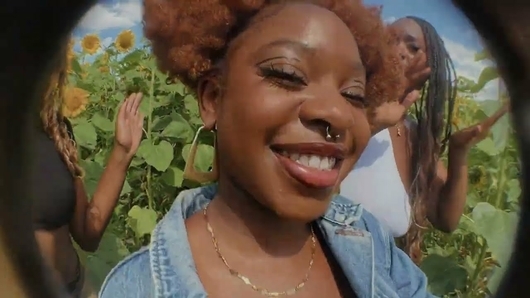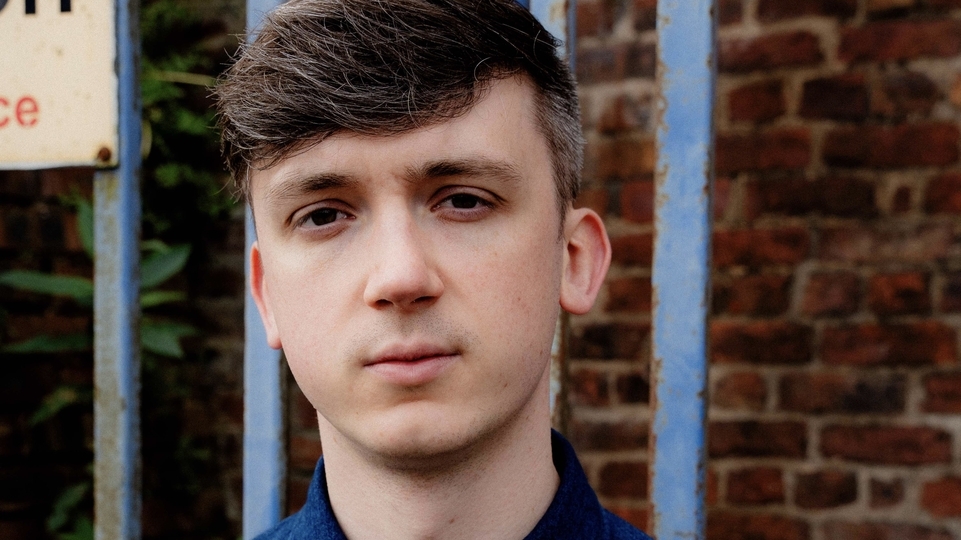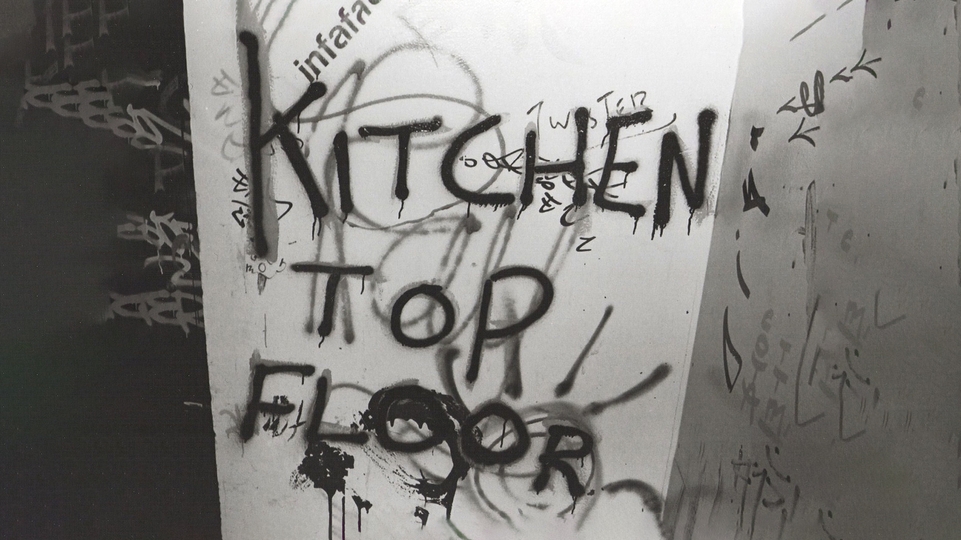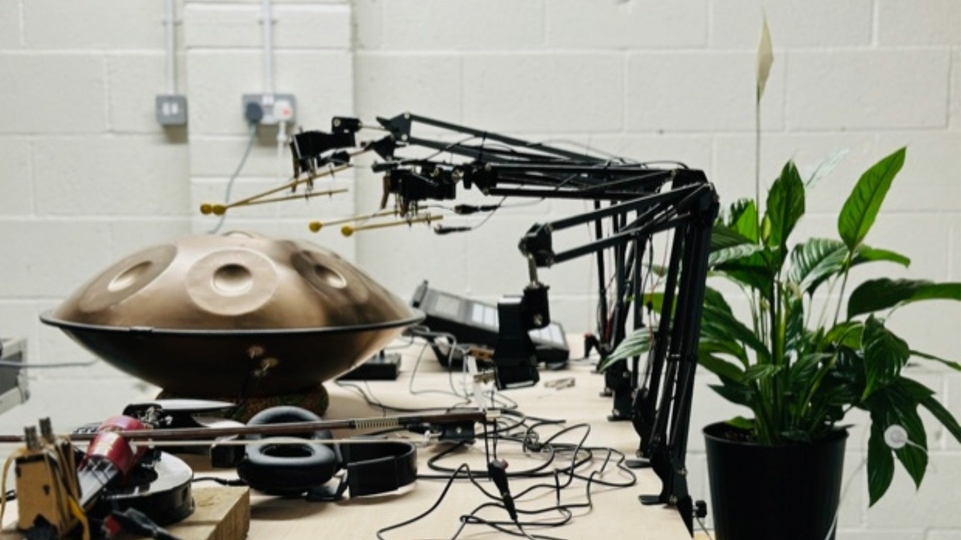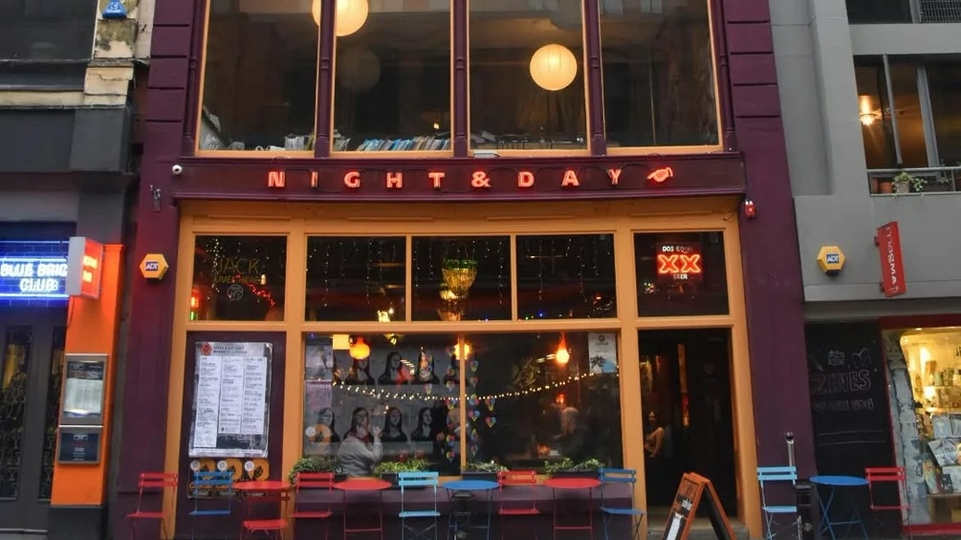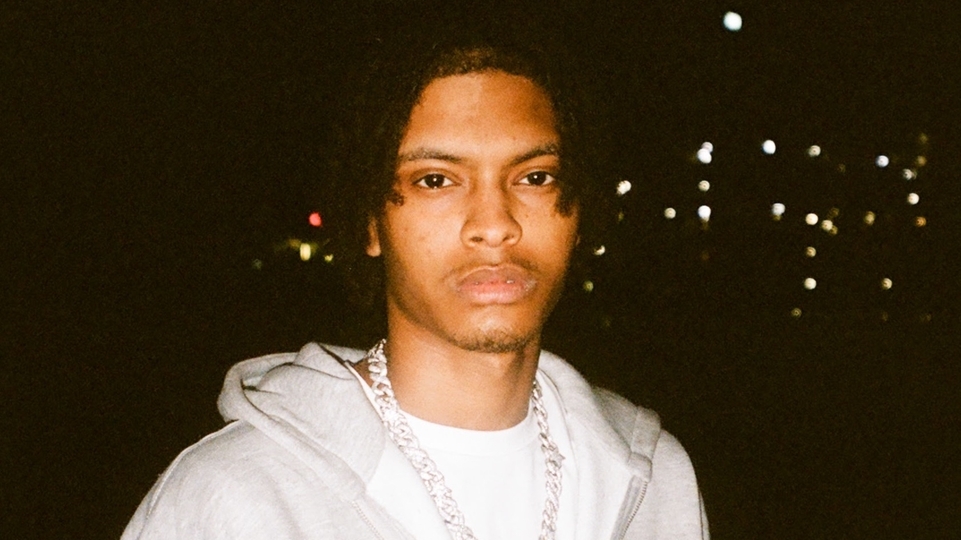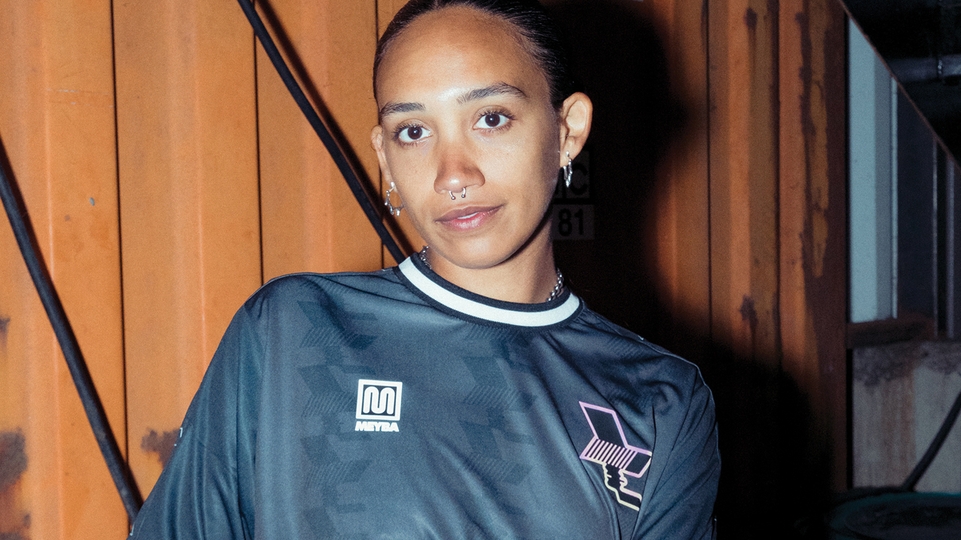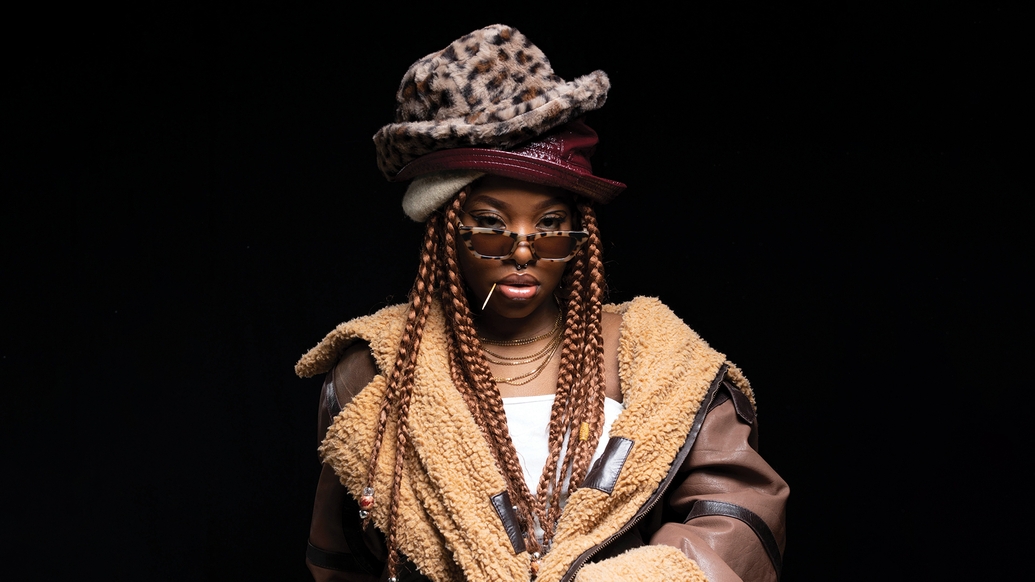
Meet The MC: Meduulla
With lyrics inspired by her Zimbabwean heritage and life in Manchester, Meduulla’s route into rap was through poetry. She speaks to Sophie Walker about her dual perspective, her love of words, and appreciation for the power of hip-hop
The medulla oblongata transmits signals between the spinal cord and higher parts of your brain. It commands your heart to beat, your lungs to breathe; it’s the connective force between those vital yet vastly different parts of yourself that unite to bring you into being. This overlooked part of our anatomy is the namesake of Mancunian rapper Meduulla, a student of hip-hop and wordplay whose mission is to remain ever-curious.
The release of her debut EP ‘Oblongata’ is an eight-track statement of self. Bold strokes of jazz and 24-karat boom bap beats evoke a sound that is both steeped in nostalgia and startlingly fresh; she is a graduate of the school of Lauryn Hill and A Tribe Called Quest as equally as she is carving a space that is entirely her own. And then, of course, there are Meduulla’s words: with her roots as a poet, fascinated by language and its endless potential for self-expression, each track unfurls like a chapter. Her beats are trojan horses for the complexities of identity bound up in being a first-generation immigrant from Zimbabwe, matters of the heart as a queer artist, and the joys and struggles that have defined her story.
“It was like, ‘Okay, you guys don’t know much about me, but these are my origins and this is what I’m about: what inspires me, the things I love, the things that frustrate me’,” she says, speaking of her intention for ‘Oblongata’. Collaborating with the producer Ethan Hill, the mixtape’s opening track ‘Road To Damascus’ was written last: a stripped-back manifesto that encapsulates her vision and spirit over luscious piano flourishes. When it comes to her message, she does not flinch: “Take a seat for me / I won’t let anybody speak for me / I had the whole world telling me repeatedly / I ain’t got the keys to be the champ that I feel in me / Now everybody’s feeling me.”
When much of UK hip-hop is entrenched in particular sonic tropes, Meduulla’s sound isn’t bound to borders or city limits: hers is a reflection of the collision of cultures that shaped her upbringing. ‘Limbo’ is an extended metaphor about being in a relationship with both Zimbabwe and the UK, heart torn; over a mellow, jazz-inflected beat brought to life by Manchester hip-hop collective The Mouse Outfit, she untangles the knots of identity when “home” is not so easily defined.
“Growing up in Manchester made me more conscious of preserving my Zimbabwean heritage,” she reflects, but is quick to stress that she is “very much Mancunian”. The switch between the two was flipped as soon as she left the house. “When I was at home, it was a Zimbabwean household: we’d eat Zimbabwean food, listen to the music, speak Shona... and then, as soon as I stepped out the door, it was Manchester through and through. It’s a song about being in love with them both, but them not loving each other.”
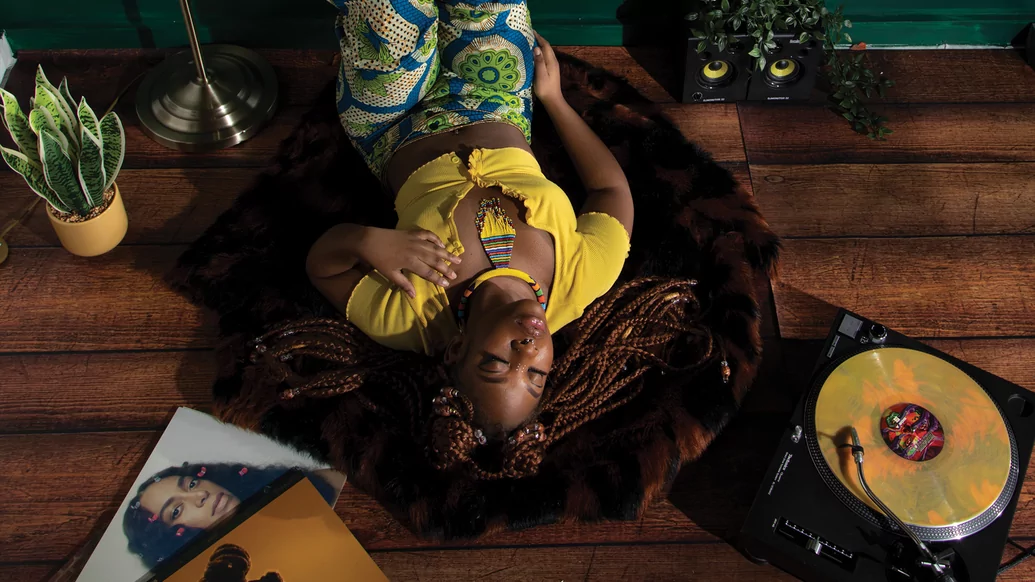
“I have a lot of people who moved to another country who tell me they really relate to ‘Limbo’ — this idea that you don’t really exist properly in one space, but learning to find beauty in that as well. Home is wherever you make it.”
This dual-perspective is one of many strands to her story that makes her work unique. “First, even just being a woman who raps,” she lists, “also being a first-generation immigrant living in Manchester with Zimbabwean heritage, and then being a woman who is pursuing a difficult career... I think a lot of people can relate to aspects of what I’m writing about. I always say when you travel to a different continent, you gain a new worldview. I have a lot of people who moved to another country who tell me they really relate to ‘Limbo’ — this idea that you don’t really exist properly in one space, but learning to find beauty in that as well. Home is wherever you make it.”
The origins of ‘Limbo’ lie with a poem. Last year, Meduulla won first prize in a poetry competition as part of Refugee Week, an annual festival celebrating their voices and elevating their experiences. “Honestly, I get very geeked out when I talk about words and language,” she smiles. “It’s such a beautiful thing.” While her family weren’t particularly musical, her love of all things literary stemmed from her father: “He has always been a very articulate human being — he also writes poetry in both English and Shona”. Every day, after school, she and her dad would exchange their ‘word of the day’, and as a teenager she was encouraged to showcase her talent in competitions. It was then that she met Mancunian poet Shirley May, who, Meduulla tells DJ Mag, “became one of the most important poetry mentors of my life”.
Every Tuesday, she would travel almost two hours after school to study under her wing. In time, Meduulla built a hard- earned armoury of language that her debut mixtape deploys with confidence and wit. Her gravitation towards music was, in her mind, inevitable. Her older cousins would introduce her to their hip-hop collection, which left a profound impression upon her: “It’s a beautiful language of resistance. It started off as protest music, you know, and it’s such a raw form of expression I wanted to be a part of. I wanted to see if what I said could be translated to music, and lo and behold, it did. I feel like adding music to poetry brings a new dimension to the meaning, because music knows no language. There’s no limit to its resonance.
‘Spinney Drive’, a sun-kissed boom bap beat, retraces her beginnings in Manchester: a child uprooted from Zimbabwe and forced to acclimatise to an unfamiliar, and sometimes unforgiving city. “It was quite a difficult time, because we were the only Black people on the council estate, and people weren’t always so open to that,” Meduulla recalls. “My older cousin got caught up in some bad situations. Before we moved to the UK, he was very much a studious person, straight A grades, family-focused. And then, moving to the UK, you realise that there are many preconceptions of Black people -— and Black men particularly — that get projected onto you. And, you know, you learn in sociology that when people put things onto you, you can become them. I had to see him go through so much, and I’m lucky that because I was younger, I could see their experiences and learn from them. We all lived on the same street, me and my cousins, and my only saving grace was even if no one else could understand me, at least my family could.”
But despite the hardships, Meduulla is an eternal optimist. When she raps, you can almost hear her smile, her words spinning the fabric of her future in an act of manifestation that she trusts in completely. With her first headline show lined up and international collaborations on the cards, 2024 is marked to be both an elevation and expansion for Meduulla. “I’ll be real, it’s probably 90% delusion and 10% self-belief,” she laughs. “I just want to authentically share part of myself with the world. The world is grim sometimes, so if I can share a little bit of happiness or wisdom, then that makes it all worth it.”
